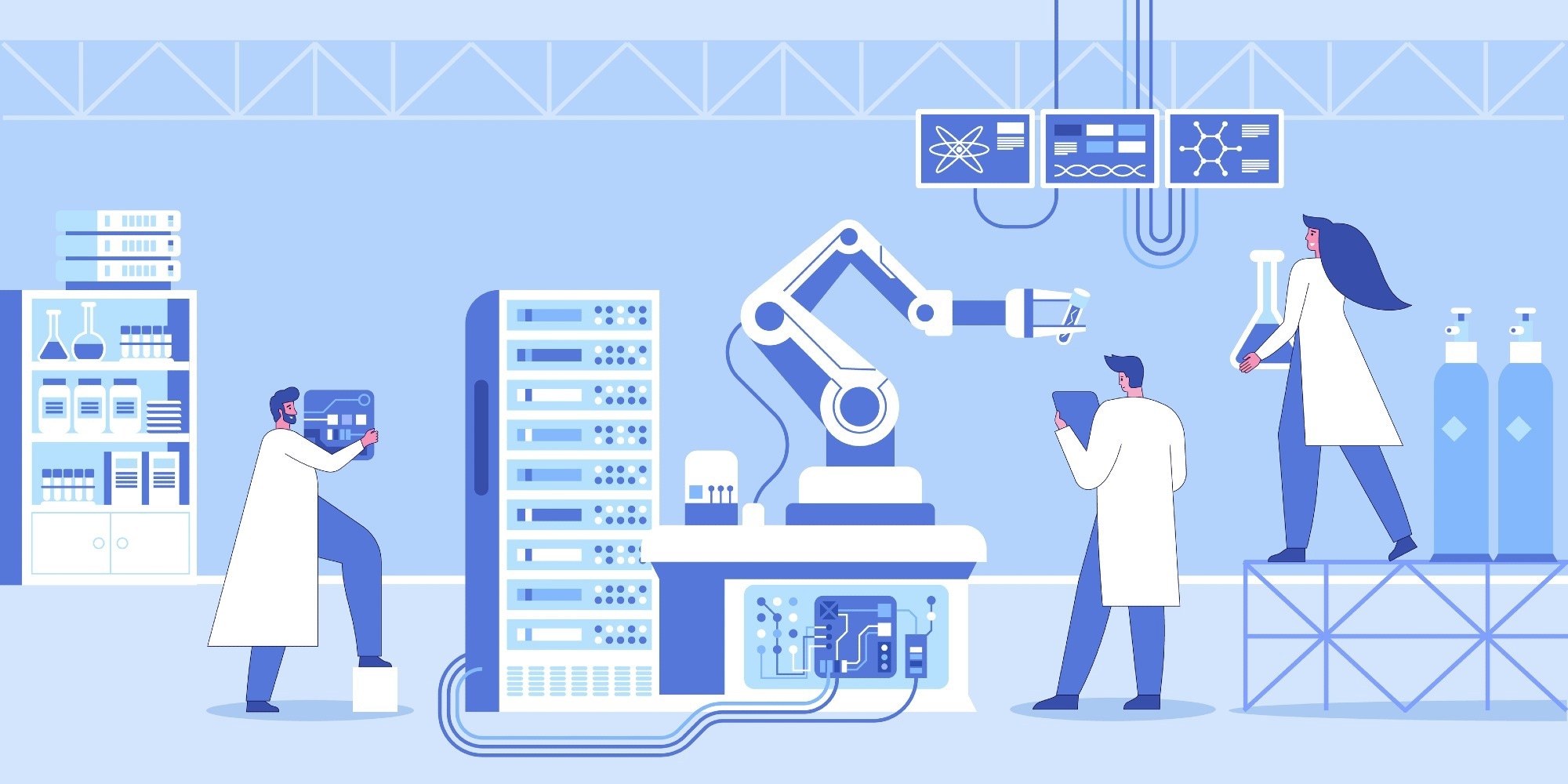Drug discovery usually starts with a hypothesis of a biological mechanism within a disease that can be targeted through potential compounds. This process leads to developed assays and large libraries of compounds being screened. Once the compounds are narrowed down and optimized, they are then advanced to preclinical testing and clinical trials.

Image Credit: metamorworks/Shutterstock.com
Standardization includes creating, issuing, and implementing standards, which aim to provide rules and guidelines for repeatable results. The development and use of standards are integral to the ethos of the Food and Drug Administration (FDA), which apply to activities including the development of performance characteristics, testing methodology, manufacturing practices, product standards, scientific protocols, compliance criteria, ingredient specification, and labeling.
The use of standardization within the drug discovery process may be a good strategy to improve the speed of drug discovery, which may aid with decreasing the overall length of the drug development and approval process, as well as ensuring drugs are effective and safe for patient use.
Drug Approval Process
The drug discovery process to gain FDA approval is extremely time-consuming, such as taking 12 years before a product reaches the market. Nature Biotechnology has published research that showed between 2003 to 2011, 90% of drugs that went on to clinical trials failed to gain FDA approval. The stringent drug approval criteria ensure drugs are meticulously tested to assess their efficacy, efficiency, and safety before being used by patients.
This standardization of the drug approval process has increased innovation and advancements within pharmaceutical research as it has enabled researchers to produce creative and effective strategies to ensure their drug has a higher probability of gaining approval. Significantly, this can have a positive impact on pharmaceutical companies as well due to the high expense that is associated with developing novel drugs and performing clinical trials.
Ensuring the drug discovery process is more effective with high-quality ingredients also influences the company's finances, as this can reduce the level of resources wasted on the discovery and development process.
Role of High-Throughput Screening (HTS) in Drug Discovery
High-throughput screening includes an automated process that detects active compounds very fast. Standardizing this strategy across pharmaceutical companies can accelerate the drug discovery process. The screening results can provide a strong start to discovering drug ingredients and the overall drug design.
This process can enable a higher degree of understanding and knowledge of the mechanisms of action and interaction of biochemical processes that are affected by drug compounds, enabling a targeted approach to drug design. This approach would be focused on molecular medicine, with the starting point being to understand the underlying pathophysiology of the disease to identify and build drugs and validate drug targets.
Additionally, the automated nature of high throughput screening can allow mass testing of large volumes of compounds or specific biological or molecular targets, which may be a faster, more effective, and more efficient strategy to create drugs.
This process can identify "hits" that are refined to produce "leads". The "lead" compounds are further optimized, and the most promising lead is advanced for preclinical testing and clinical trials. Using high-throughput screening has been a staple for the drug discovery industry for many years. However, standardizing this system, including newly developed technology, may accelerate the drug discovery process.
The development of HTS technology, as well as the encouragement of its usage, is significant for not only drug discovery but also its translation into patient care for various diseases, especially orphan diseases that may not yet have a cure. This is also true for diseases affecting the central nervous system that requires access to the blood-brain barrier. With the success rate of CNS drugs being approximately 7% and taking 10.5 years of development, it is integral that drug development in this area is accelerated.
Standardization of technology that is used for an entire industry would ensure the high quality of drugs that are being developed, which also aids in more drugs being provided with FDA approval.

Image Credit: Ico Maker/Shutterstock.com
Automation in Drug Discovery
While automated systems have already become integrated within drug discovery with the use of technology such as medium to high-throughput robotic screening systems within pharmaceutical companies, standardizing these may be a method of streamlining the drug discovery process, which may also aid in its acceleration.
Automated systems comprise decision-support systems, computational molecular design, and robotic synthesis, and while these can be done alongside human counterparts, increasing the use of machine learning technology can greatly reduce error. This can ensure time and resources are not wasted, with machine learning technology able to indicate the most optimum drug compounds to progress with and the degree of success in its use for a biological target.
Automation can also increase efficiency within a laboratory, with its capacity to perform a large volume of repetitive tasks with speed and accuracy. This can ensure researchers are being used more creatively and attend to stimulating research questions requiring thought and strategy development. Additionally, this can ensure that repetitive and monotonous tasks are automated, providing a reprieve for laboratory workers that may have felt stressed under the same demand.
Translational Significance
Standardization can ensure all drug discovery processes are being undertaken in the same manner, with a high level of research and effective practices.
The standardization of automation within laboratories for drug discovery may aid in accelerating the process due to a larger volume of tasks being completed in a shorter period, ensuring the whole day is used, including the night.
Overall, automation and high-throughput screening technologies can ensure the drug discovery process is streamlined, with effective strategies being used for every stage, which will impact the time it takes for compounds to start preclinical testing as well as clinical trials.
With clinical trials also being a time-consuming process, accelerating the drug discovery process may advance the volume of drugs gaining FDA approval for various diseases at an increased speed.
Sources:
- Blay V, Tolani B, Ho S, Arkin M. High-Throughput Screening: today's biochemical and cell-based approaches. Drug Discov Today. 2020;25(10):1807-1821. doi:10.1016/j.drudis.2020.07.024
- Carnero A. High throughput screening in drug discovery. Clinical and Translational Oncology. 2006;8(7):482-490. doi:10.1007/s12094-006-0048-2
- FDA (2018) Standards, U.S. Food and Drug Administration. FDA. Available at: https://www.fda.gov/regulatory-information/standards (Accessed: November 13, 2022).
- Forum on Neuroscience and Nervous System Disorders; Board on Health Sciences Policy; Institute of Medicine. Improving and Accelerating Therapeutic Development for Nervous System Disorders: Workshop Summary. Washington (DC): National Academies Press (US); 2014 Feb 6. 5, Opportunities to Improve and Accelerate the Drug Development Pipeline. Available from: https://www.ncbi.nlm.nih.gov/books/NBK195041/
- Schneider, G. Automating drug discovery. Nat Rev Drug Discov 17, 97–113 (2018). https://doi.org/10.1038/nrd.2017.232
- Tay, A. (2022) High-throughput screening methods for Drug Discovery, Drug Discovery from Technology Networks. Available at: https://www.technologynetworks.com/drug-discovery/articles/high-throughput-screening-methods-for-drug-discovery-358932 (Accessed: November 13, 2022).
Further Reading